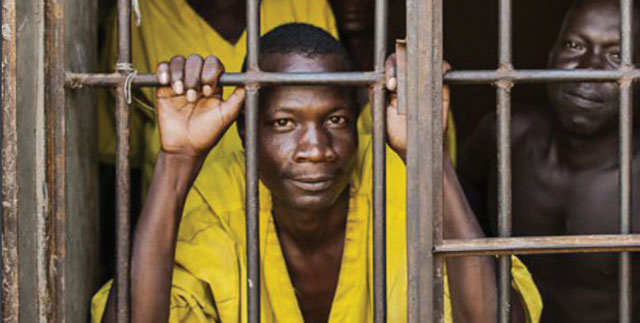 Sad stories of children
Sad stories of children
Patrick Lwanga Zizinga, an ex-death row convict spent 12 years waiting to be hanged after he was accused of killing his wife. It turned out the wife is alive and he was released. But he found his home broken.
One of his sons, Zizinga explained committed suicide when a classmate told him that his father had finally been executed and that the hangman was coming for Zizinga’s son next. His adopted daughter ran away from home and got married even if she was below the age of consent.
Francis Ssuubi, a former prisoner and founder of the Wells of Hope Ministries in Semuto, Nakaseke District where most of these children stay, told The Independent that there are about 350,000 children in Uganda who have one of their parents in prison. He said his NGO cannot afford to help all the children.
While in prison, Ssuubi heard stories from prisoners about their children. Many saw no hope for their children.
“That is when we started reaching out to children,” Ssuubi told The Independent, “At first, we used to do Christmas parties and then we began paying school fees.”
“One thing led to another and I founded the first school in the world for children whose parents are in prison.” Today, Wells of Hope Ministries supports close to 160 children whose parents are awaiting the hangman’s noose.
“I have travelled all over Uganda and I have noticed that imprisonment affects poor and illiterate people more,” he says, “When these poor people are imprisoned, poverty shoots up and this affects children more.”
“Young lives are being destroyed and for children, whose parents are on death row, the trauma is unbearable and this can lead to mental related cases like post-traumatic stress disorder. I really think we should not have children pay such a big price.”
According to Amnesty International’s 2019 annual report, there are at least 19,336 people known to be under the death sentence worldwide while at least 690 people were executed by the end of 2018. In Uganda, there are 134 prisoners on death row; comprising five women and 129 men.
Medard Ssegona, the MP for Busiro County East who was the keynote speaker at the event is the sponsor of the Death Penalty Bill now before parliament. Ssegona knows firsthand what being accused of a crime that carries the death penalty feels like. He was once accused of treason and jailed in Luzira Maximum Security Prison in Kampala.
“I was alleged to have recruited rebels on a day which turned out to be my wedding day. I did not recruit them from Namirembe Cathedral where I had my wedding or Entebbe where I went for my reception or in Durban, South Africa, where I went for my honeymoon but, deep in Kagadi in western Uganda.”
Ssegona sits on the Committee on Legal and Parliamentary Affairs. Here, he has heard the sad testimonies from many people who have been convicted for murder only for victims to resurface.
He says his Bill is intended to abolish the death penalty because there is no mathematical formula to arrive at the death penalty.
“Uganda has had the mandatory death penalty for many years but people have continued murdering,” Ssegona says, “Who does not know that treason attracts the death penalty?”
He said when somebody is going to commit a crime, they are not bothered by the nature of punishment they are going to receive; they are bothered only about their motivation to commit a crime.
He said in case of those who are paid to commit a crime; they only care about three things: “the payment they might earn, their effectiveness to deserve the pay and their ability and technique to evade the law.”
“So if you think the death penalty is going to stop crime, forget it,” he said.
Connie Numbi, the manager for the Campaign on the abolition of the death penalty project at FHRI approaches it from a different perspective; that of rehabilitation and remorse among convicts.
“We are saying change the sentence and embrace an alternative,” she told The Independent on the sidelines of the event, “We have seen people who have killed and have come out of prison very remorseful and have gone on to be useful members of society.”
 The Independent Uganda: You get the Truth we Pay the Price
The Independent Uganda: You get the Truth we Pay the Price



